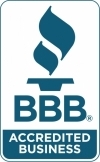Thanks to our friends at ASPCA Animal Poison Control Center, we would like to share a handful of pet safety tips to keep in mind during the winter time.
Antifreeze
Antifreeze can leak from a car radiator onto the ground. Some animals are unfortunately attracted to this due to the sweet smell and taste. This chemical is absorbed very rapidly once ingested. There is a narrow margin of safety when animals ingest this liquid and small amounts can lead to permanent damage to the kidneys. If a pet is suspected to have been exposed to Antifreeze, it is imperative that this pet be taken to a veterinarian immediately for treatments.
Ice Melts
Most ice melts contain large amounts of sodium salts. Some ice melts can cause damage to the paw pads when stepped on. These can get stuck in the paws and cause redness, cracking, or chapping. Ingestion of these melts can cause mild to severe toxicity resulting in upset stomach, vomiting, and neurologic signs (trouble walking, muscle tremors, or seizures). There are “pet-friendly” ice melts that may help to minimize the chance of toxicity or an injury. Also, try to wash your pet’s paws when they come in from outside.
Liquid Potpourri
Liquid potpourris are popular household fragrances commonly used during the holiday season. Pets are often exposed to liquid potpourri by direct ingestion from simmer pots or spills, by rubbing against leaky bottles or simmer pots containing the potpourri, or from spilling the containers upon themselves. Oral exposures result from grooming themselves and trying to clean the liquid off their fur. Pets being exposed to some types of liquid potpourris can result in severe oral, dermal, and ocular damage.
ALWAYS Be Prepared
Your animal may become poisoned in spite of your best efforts to prevent it. You should keep telephone numbers for your veterinarian, a local emergency veterinary service, and the ASPCA Animal Poison Control Center (1-888-4 ANI-HELP) in a convenient location. If you suspect that your pet has ingested something poisonous, seek medical attention immediately.
ASPCA Animal Poison Control Center
1-888-4ANI-HELP





